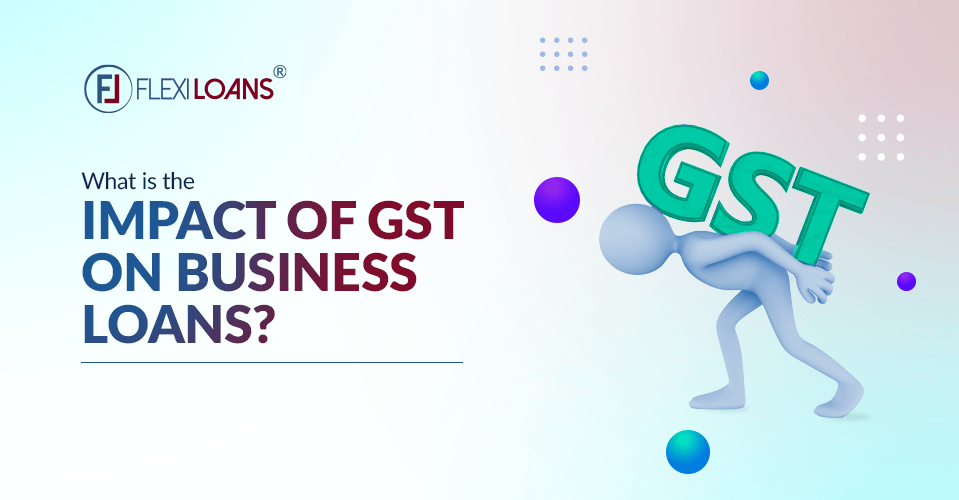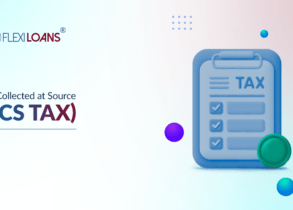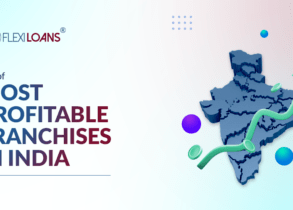Oct 05, 2022

The rollout of the Goods and Services Tax (GST) has been a game-changer for businesses in India. It has made compliance easier and significantly boosted the country’s economy. The new indirect tax regime has replaced a plethora of earlier taxes levied on the sale and manufacture of goods and services.
One of the key aspects of the GST is its impact on business loans. Before we delve into how GST has changed the business loan landscape in India, let’s first understand the basics of this new tax regime.
What is GST?
GST is an indirect tax introduced in India on 1st July 2017. It subsumes a number of earlier taxes levied on the sale and manufacture of goods and services, such as excise duty, service tax, VAT, etc. The main aim of GST is to create a single national market by eliminating interstate trade barriers. It has replaced a plethora of taxes with a single, unified tax structure.
GST is levied on the supply of goods and services at every stage of the supply chain, from manufacture to sale. Under the GST regime, businesses are required to obtain a GST registration certificate from the concerned authorities. Depending on their turnover, they must also file monthly, quarterly, or annual GST returns. GST has made compliance more straightforward and more efficient for businesses. It has also greatly boosted the country’s economy by increasing tax revenue and curbing black money.
How has GST impacted business loans?
The implementation of GST has positively impacted business loans in India. Let’s take a look at how:
1. Increased access to credit
One of the key benefits of GST for businesses is that it has increased their access to credit. This is because businesses can now claim Input Tax Credit (ITC) on the taxes paid on their inputs and input services. ITC can be claimed for taxes paid on purchases made from registered suppliers. The credit can then be used to offset the GST liability on supplies the business makes.
Earlier, businesses could not claim ITC on taxes paid on inputs and input services. This increased the cost of production and made it difficult for businesses to obtain loans from financial institutions. But with the introduction of GST, businesses can now claim ITC and use it to offset their GST liability. This has made it easier for businesses to obtain loans from banks and NBFCs.
2. Ease of doing business
The GST regime has also made compliance more straightforward and efficient for businesses. Under the GST regime, businesses must file monthly, quarterly or annual GST returns, depending on their turnover. They can do this easily online through the GST portal.
Previously, businesses were required to file multiple tax returns, which was time-consuming and tedious. But with GST, they can now file a single return for all the taxes that have been subsumed under it. This has made compliance simpler and more efficient for businesses.
3. Boost the economy
GST has dramatically boosted the country’s economy by increasing tax revenue and curbing black money. The new indirect tax regime has replaced a plethora of earlier taxes levied on the sale and manufacture of goods and services. This has led to an increase in tax revenue for the government.
In addition, GST has also helped to curb black money by making it difficult for businesses to evade taxes. Under the GST regime, businesses are required to obtain a GST registration certificate from the concerned authorities. Depending on their turnover, they must also file monthly, quarterly, or annual GST returns. This makes it difficult for businesses to evade taxes and generate black money.
4. Improved credit rating
The implementation of GST has also led to an improvement in the credit rating of businesses. Earlier, businesses could not claim ITC on taxes paid on inputs and input services. This increased the cost of production and made it difficult for businesses to obtain loans from financial institutions.
But with the introduction of GST, businesses can now claim ITC and use it to offset their GST liability. This has improved the credit rating of businesses and made it easier for them to obtain loans from banks and NBFCs.
5. Reduced interest rates
The GST regime has also helped to reduce interest rates on business loans. Earlier, businesses had to pay a higher interest rate on their loans because they could not claim ITC on taxes paid on inputs and input services. But with the introduction of GST, businesses can now claim ITC and use it to offset their GST liability. This has led to a reduction in the interest rates charged on business loans by banks and NBFCs.
The implementation of GST has thus positively impacted business loans in India. It has increased access to credit, made compliance simpler and more efficient, and boosted the country’s economy. It has also led to an improvement in the credit rating of businesses and a reduction in the interest rates charged on business loans.
6. Increased exports
The GST regime has also made exports cheaper and more competitive. Under the GST regime, exports are zero-rated, meaning businesses do not have to pay GST on exports. This has made exports cheaper and more competitive.
Earlier, businesses had to pay taxes on both local and export sales. This made exports uncompetitive as they were priced higher than similar products offered by other countries. But with the introduction of GST, exports have become cheaper and more competitive. This has led to an increase in exports from India.
7. Improved supply chain management
The GST regime has also helped to improve supply chain management by making it simpler and more efficient. Under the GST regime, businesses must file monthly, quarterly or annual GST returns, depending on their turnover. They can do this easily online through the GST portal.
This has made compliance simpler and more efficient for businesses. In addition, it has also helped to improve communication between businesses and the tax authorities. Previously, businesses were required to file multiple tax returns, which was time-consuming and tedious. But with GST, they can now file a single return for all the taxes that have been subsumed under it.
Conclusion
These are some of the key changes that have been introduced in the business loan sector with the introduction of GST. Businesses should keep these changes in mind while availing of loans from banks and financial institutions.
FlexiLoans is a Non-Banking Financial Company providing business loans, MSME loans, small business loans, GST business loans, and small-term loans to new businesses at a low rate of interest. Check business loan eligibility and business loan EMI calculator. For more such informative articles, visit http://flexiloans.com/ right now
Read More:
Jurisdiction of GST State Code
Documents Needed for GST Registration







